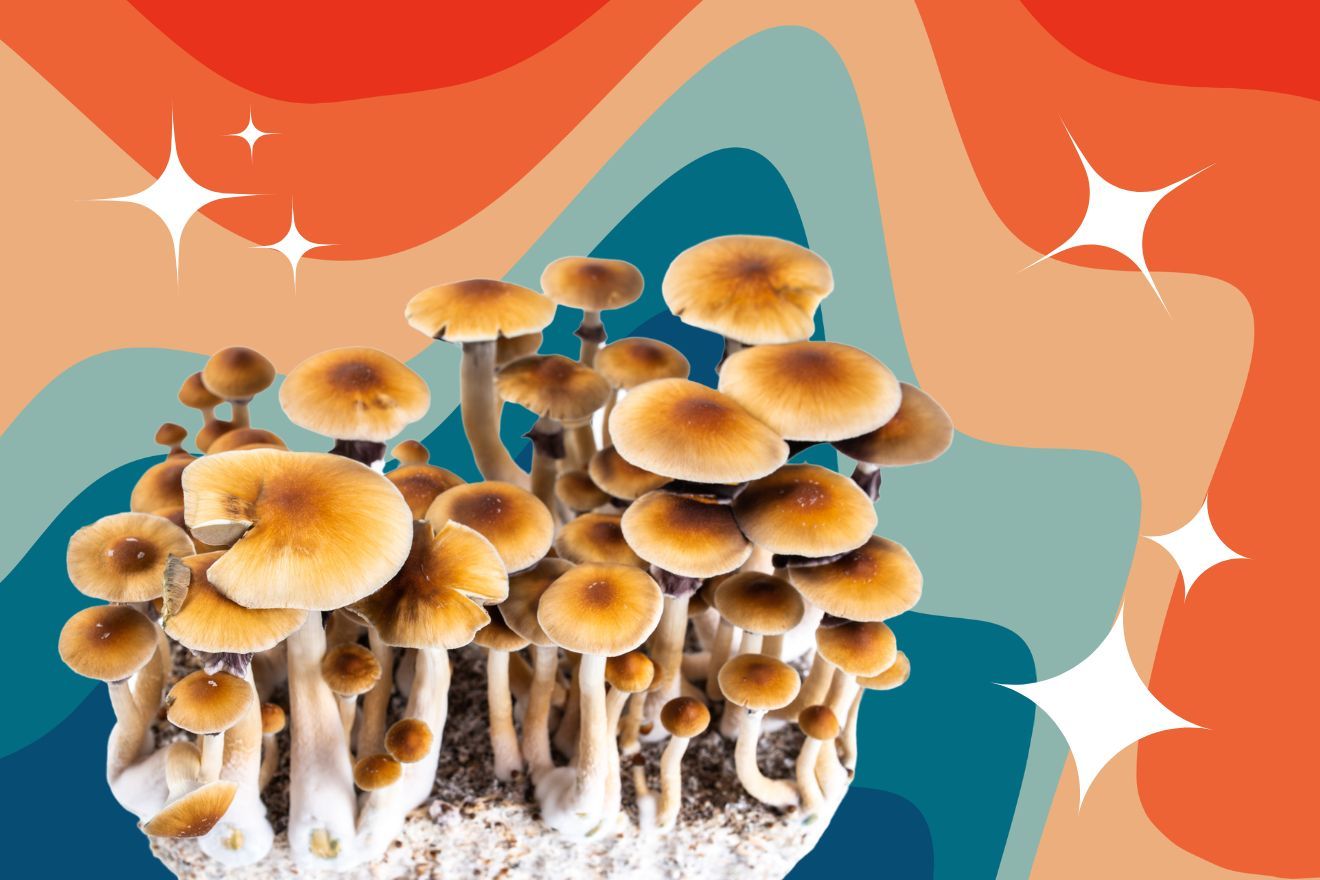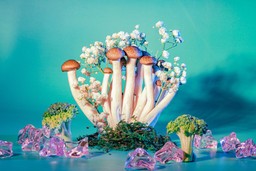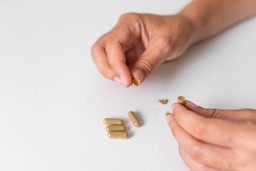Clinical trials of psychedelic-assisted therapies are furthest along for depression and post-traumatic stress disorder (PTSD). But emerging studies looking at lower, repeated doses of psychedelic substances have found that microdosing can be effective in reducing anxiety symptoms. Psychedelic therapy with full doses of MDMA or psilocybin may also prove helpful for treating anxiety related conditions. Let’s explore how anxiety shows up and why psychedelics could offer relief.
What is Anxiety?
It’s common to feel stressed or worried about certain events or situations. For example, you may experience anxiety during a presentation at work or before taking a long flight. However, intense, persistent, and frequent fears or worries about routine situations are usually symptoms of an anxiety disorder. Unlike general concerns or stressors, anxiety disorders involve repeated feelings of intense fear that can quickly peak into a panic attack.
Physical symptoms can also manifest as a result of anxiety, such as digestive issues, trembling, sweating, or insomnia. These symptoms can make it challenging to go about your daily life. To avoid anxiety, you may withdraw from certain situations, people, and life in general.
Different types of anxiety disorders include generalized anxiety disorder, social anxiety disorder, post-traumatic stress disorder, panic disorder, and specific phobias. Treatment depends on the type of anxiety disorder and its contributing factors or causes. However, most treatment recommendations involve both psychotherapy and medications. For example, your doctor may advise psychological counseling, often cognitive behavioral therapy (CBT), in addition to drugs like antidepressants or anti-anxiety medications.
Unfortunately, these medications may not work for everyone, necessitating research into other treatments that could benefit people with anxiety.
How Can Psychedelic Therapy Help with Anxiety?
Psychedelics like psilocybin and MDMA are under investigation to understand if they can help people struggling with chronic anxiety. So far, the research is promising for using psychedelics in the context of therapy to address the underlying causes of anxiety.
One observational study found that psychedelics were associated with significant improvements in depressive and anxious symptoms as self-reported by individuals after an experience with the substances. Another study found a substantial decrease in state anxiety over time with psychedelic use, but the positive effects were associated with how well the person thought the psychedelic would work.
In a randomized controlled study, psilocybin significantly reduced anxiety and existential distress in cancer patients. MDMA-assisted psychotherapy also reduced anxiety and psychological distress in patients with life-threatening illnesses. But how exactly do psychedelics produce such benefits for those with anxiety?
We know that psychedelics work primarily through the serotonin system in the brain, which is critical for mood regulation, among other functions. This is the same brain system that antidepressant medications like selective serotonin reuptake inhibitors, better known as SSRIs, act on. Entactogens, such as MDMA, bind to transporters that normally take serotonin back into the neuron, and as a result, increase serotonin levels in the brain. MDMA also enhances release of dopamine and norepinephrine, as well as hormones oxytocin, cortisol, prolactin, and vasopressin. When MDMA is administered during psychotherapy a person with PTSD can more readily access trauma memories and talk about their emotions with a therapy team. MDMA can help with trauma-related memory reconsolidation and fear extinction, thereby decreasing associated anxiety symptoms.
In a different way, “magic mushrooms” that contain psilocybin activate serotonin 2A receptors through its metabolite (psilocin) that reaches the brain and induces the psychedelic effects. The experiences can be quite different between MDMA and psilocybin, but both are used during talk therapy to help the participant disrupt negative patterns of thinking and find greater insight into their struggles, relationships, and mental states.
Scientists have found through neuroimaging studies that psychedelic trips affect the brain’s default mode network (DMN), often active during mental time travel and self-reflection. Mood disorders may hijack the DMN, causing ruminations or thought loops that often accompany mental health disorders. Researchers speculate that psychedelic substances may work to reset this system, causing individuals to become more open to experiences, increasingly more self-aware, and ultimately have a better quality of life.
Many explorers back up what the research is showing through their self-explorations with ayahuasca (containing DMT), MDMA, and psilocybin. It’s been demonstrated in non-human models that many psychedelics increase neuroplasticity, which could be one reason why people experience sustained positive effects in reducing their anxiety and depression.
What Considerations Exist for Psychedelics as Anxiety Treatment?
Many people online are saying that microdosing psilocybin or LSD can help reduce anxiety. Microdosing is when a person takes sub-perceptual doses of a psychedelic, generally equal to or less than ten percent of a full dose. Generally, people will take a microdose once every few days, or five days on dosing and two days off. Microdosing is popular with those who want the benefits of psychedelics without the full blown perception-altering effects.
Large doses, referred to as macrodosing, administered under the care of therapy professionals in clinical trials, have also been tested in treating anxiety-related conditions. MDMA or psilocybin are given in the context of psychotherapy to help a person get at the root cause of their symptoms.
Additionally, preparation and integration with psychedelic treatment are critical for long-term outcomes, as is the person’s mind set and the therapeutic environment for the experience. For example, one study relied upon extensive therapy sessions before administering psychedelics to optimize the individual’s expectations and frame of mind.
Setting refers to the physical environment, and everything and everyone within and around it, in which psychedelic therapy takes place. The setting should be relaxed and comfortable. It usually contains soothing artwork, comfortable seating, and a music playlist. The person receiving the medicine may also wear eye shades to help them go inwards, and at other times talk to their therapy team about what they are experiencing. Study protocols include a series of integration therapy sessions in the month after the psychedelic journey to help the participant work through what had transpired and how to apply any new found insights to their life.
What are the Drawbacks to Using Psychedelics for Anxiety?
Psychedelics, whether administered in microdoses or full doses, can be anxiety-producing for some individuals. With microdoses, some people feel jittery or on-edge. It may be these symptoms appear when the dose reaches a certain threshold but little is known about why this happens. During full dose sessions, the psychedelic effects and perceptual distortions can make the user feel nervous or anxious. Unpleasant or frightening hallucinations can be overwhelming, and even cause physiological side effects, such as nausea or vomiting, adding to discomfort and subsequent greater anxiety.
However, there are various actions that can be taken to decrease the likelihood of these negative side effects (check out our free Harm Reduction course for tips). First, properly preparing individuals through several preparatory (non-drug) sessions is important. Additionally, skilled practitioners can help the individual cope and better process what they are perceiving. Finally, post-integration sessions can help individuals work through their experiences, integrate the insights into their day-to-day, and prepare for another session.
Takeaway
Initial studies into psychedelics’ positive mental health benefits for those with anxiety disorders appear promising. With larger-scale psychedelic trials underway, we will see how psychedelic therapy compares to traditional psychotherapy. In addition to the psychedelic substance, the essential elements that appear to help those with anxiety include careful preparation and integration facilitated by trained practitioners. But it is important to keep in mind that not everyone benefits from psychedelics, and for some, psychedelic experiences can make anxiety worse. The ongoing research trials will help us to better understand who is mostly likely to respond to psychedelic therapy for long-lasting anxiety reduction.








